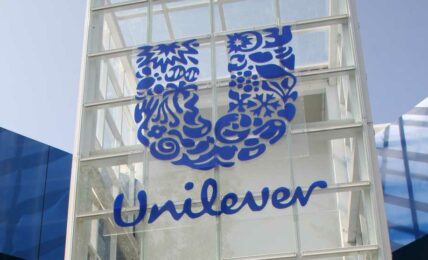
UK ad regulator the Advertising Standards Authority (ASA) ruled today that an ad by Lloyds Bank highlighting the bank’s contributions to the low-carbon transition through its clean energy financing activity was misleading, due to its failure to provide information on Lloyd’s continued financing for carbon emitting activities, which it added “represented a large contribution to GHG (greenhouse gas) emissions.”
The regulator ordered Lloyds to no longer display the ad, and to “ensure future ads featuring environmental claims did not mislead by omitting significant information which put the claims into context.”
The ruling referred to a paid LinkedIn post by Lloyds containing copy which said “What are we doing to help accelerate the transition to a low carbon economy?,” and describing the bank’s actions to “supporting the energy transition” by its own reduced reliance on fossil fuels by powering buildings with renewable energy, and by “putting the weight of our finance into clean and renewable energy.”

The ad was challenged by ad-focused activist group Adfree Cities in May 2024, who claimed that the ads constituted greenwashing, and fell short of the UK advertising Codes which require ads not to mislead by omitting material information, in this case by leaving out information regarding Lloyds’ contribution to GHG emissions.
In its assessment of the challenge, the ASA noted that Lloyds said that the claims in the ad were factually accurate and could be substantiated, and that they added “balancing information that acknowledged Lloyds’ involvement with carbon intensive industries,” including by stating that they were “continuing to reduce [their] reliance on fossil fuels.”
The ASA said, however, that imagery and claims in the ad, including Lloyds’ statement that it is putting the “weight of [its] finance” into renewable energy, would give the impression to consumers that the a significant proportion of the bank’s investment and financing targeted renewable energy. The regulator noted that Lloyds’ sustainability report revealed that the bank’s financed emissions in 2022 reached 32.8 million tonnes of CO2e, and that “investment in and financing of areas of climate risk comprised a notable amount of the company’s activities and would continue to do so in the near future.”
ASA said in its ruling that by omitting this “material information,” the ad would be likely to mislead.
Adfree Cities also challenged three other ads by Lloyds, although these challenges were not upheld by the ASA.
In a statement provided to ESG Today following the ruling, a Lloyds Banking Group spokesperson said:
“We remain committed to supporting transparent public discussion of this important issue. The ASA Council outcome relates to a single LinkedIn post for a sustainability awareness day, which will not be repeated. Reducing the environmental impact of our business remains a fundamental part of our strategy and we will continue to work alongside customers, the government, and the market to reach net zero by 2050 or sooner.”


